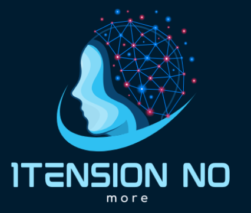Mental health is an integral part of overall well-being, and as future mental health professionals, your role in guiding others toward a healthier mind is crucial. Understanding the complexities of mental health, and knowing how to handle mental health challenges, is vital in providing the best care. In this post, we’ll explore the strategies, considerations, and approaches that can help you navigate the world of mental health care with confidence, particularly focusing on how diet, specifically carbohydrates, plays into this equation.
Table of Contents
Understanding Mental Health: A Holistic Approach
Mental health encompasses emotional, psychological, and social well-being. It affects how we think, feel, and act, influencing how we handle stress, relate to others, and make choices. Mental health is dynamic, influenced by a range of factors including genetics, environment, lifestyle, and diet.
As you train to become a mental health professional, it’s essential to adopt a holistic approach. This means considering the whole person, including their physical health, lifestyle choices, and dietary habits. Mental health is not just about addressing symptoms but understanding and treating the underlying causes.
The Role of Carbohydrates in Mental Health
When discussing mental health, diet is often overlooked. However, what we eat can significantly impact our mental well-being. Carbohydrates, in particular, play a critical role in mental health. Here’s how:
- Carbohydrates and Energy Levels The brain requires a steady supply of glucose, which is primarily derived from carbohydrates, to function effectively. A well-balanced diet with adequate carbohydrates can help maintain energy levels, improving concentration and cognitive function. Patients with erratic eating patterns or insufficient carbohydrate intake may experience mental fatigue, mood swings, and difficulty concentrating.
- Mood Regulation Carbohydrates influence the production of serotonin, a neurotransmitter that regulates mood, sleep, and appetite. A diet rich in complex carbohydrates—like whole grains, fruits, and vegetables—can promote serotonin production, leading to better mood regulation. This is particularly important in managing conditions like depression and anxiety, where mood stabilization is a key treatment goal.
- Stress and Anxiety Stabilizing blood sugar levels through the intake of complex carbohydrates can help reduce stress and anxiety. When blood sugar levels drop, the body responds by releasing stress hormones like cortisol, which can exacerbate feelings of anxiety. A diet that includes regular intake of complex carbohydrates can help keep blood sugar levels stable, reducing stress and supporting mental resilience.

How to Handle Mental Health: Strategies for Future Professionals
Patient-Centered Care Handling mental health begins with understanding the unique needs of each patient. Adopt a patient-centered approach that considers the individual’s history, lifestyle, and dietary habits. Engage in active listening and create a safe, non-judgmental space where patients feel comfortable sharing their concerns. This approach fosters trust and encourages open communication, which is critical in mental health care.
Integrating Diet into Mental Health Treatment As a future mental health professional, you may not be a dietitian, but understanding the basics of nutrition can enhance your practice. Consider how dietary habits, particularly carbohydrate intake, impact mental health. Collaborate with nutritionists to offer integrated care that addresses both mental and physical health. For example, if a patient is struggling with low energy, mood swings, or anxiety, you might explore their diet as a contributing factor.
Promoting Mental Health Consciousness Mental health consciousness involves being aware of how everyday choices, including diet, affect mental well-being. Educate your patients about the connection between diet and mental health. Provide them with practical advice on incorporating complex carbohydrates into their meals, and explain how these foods can help stabilize mood, improve focus, and reduce stress.
Addressing Stigma and Misconceptions Mental health still carries a stigma in many communities, and misconceptions about mental health treatment can be barriers to care. As a mental health professional, you have a role in challenging these stigmas. Educate patients and the broader community about the importance of mental health care, and advocate for a holistic approach that includes diet, exercise, and other lifestyle factors.
Continuous Learning and Adaptation Mental health care is a dynamic field, and staying updated on the latest research and best practices is crucial. Continuously seek out new information, particularly on emerging topics like the role of diet in mental health. Attend workshops, read current studies, and engage with professional communities to expand your knowledge. This commitment to learning will make you a more effective and empathetic mental health professional.

Your Attractive Practical Tips for How to handle Mental Health in Practice Heading
Start with a Comprehensive Assessment Begin by conducting a thorough assessment of the patient’s mental and physical health, including their dietary habits. This can provide valuable insights into potential triggers or contributing factors to their mental health challenges.
Educate Patients on the Importance of Diet Explain how a balanced diet, particularly one rich in complex carbohydrates, can support mental health. Offer simple, actionable advice, like choosing whole grains over refined carbs, incorporating more fruits and vegetables, and maintaining regular meal times.
Encourage Lifestyle Changes Gradually Patients may feel overwhelmed by the idea of making significant lifestyle changes. Encourage them to start small—perhaps by adjusting their diet or incorporating a few mindfulness practices—and gradually build on these changes. Small, sustainable steps are more effective than drastic changes that are difficult to maintain.
there is a youtube video” How to handle mental health”
Monitor and Adjust Treatment Plans Regular follow-ups are essential to monitor the patient’s progress and adjust treatment plans as needed. Be flexible and responsive to their needs, and remain open to exploring different strategies, including dietary changes, to support their mental health.

Conclusion
How to handle mental health is a multifaceted process that requires a deep understanding of both the mind and body. As future mental health professionals, your ability to integrate knowledge of diet, particularly carbohydrates, into your practice can significantly enhance patient outcomes. By adopting a holistic, patient-centered approach, educating patients about the importance of diet, and promoting mental health consciousness, you can make a profound impact on the lives of those you serve.

Remember, mental health is not a one-size-fits-all approach. Each patient is unique, and your ability to tailor your care to their specific needs will be a cornerstone of your success as a mental health professional.
there is a web story for how to handle mental health.


